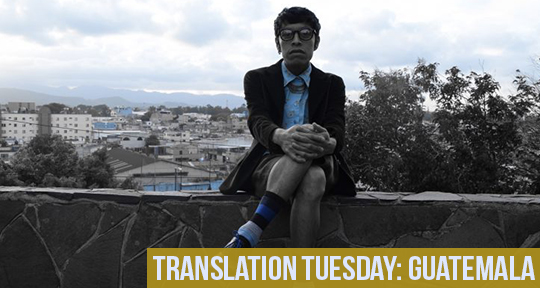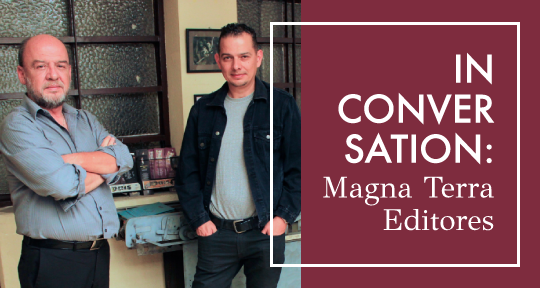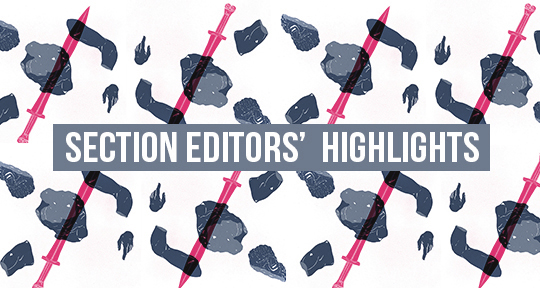The work of Eduardo Halfon has been translated into English, French, Italian, Dutch, German, and many other languages. However, this year, thanks to the work of educator and translator Raxche’ Rodríguez, his most celebrated short story, and the one from which his entire bibliography sprouts out, El boxeador polaco (The Polish Boxer) has found its way to Maya readers. Entitled Ri Aj Polo’n Ch’ayonel, Halfon’s semi-autobiographical story about a grandfather telling his grandson about the origin of the fading tattoo on his arm was published in August by Editorial Maya’ Wuj.
The result is a tiny yet gorgeous pocket version, which includes Eduardo’s original story in Spanish and Raxche’’s translation into Kaqchikel—one of the twenty-two Mayan languages recognized as official languages. With a limited run of five hundred copies, Ri Aj Polo’n Ch’ayonel is a little gem that’s now part of the impressive body of work of Eduardo Halfon, recently shortlisted for the prestigious Neustadt Prize.
I got together with Raxche’ in late November. He said he was in a hurry—his bookstore and printing and publishing house Maya’ Wuj was working double-time to finish the books commissioned for 2020’s first trimester. But after realizing the grinding of all the machines inside would keep us from hearing each other, he suggested doing the interview somewhere else.
We went out, walked past a mortuary, a park, a couple of bakeries, the national conservatoire, and found our way inside a gloomy restaurant playing jazz.
“Just so you know, I thought it’d be easy,” Raxche’ said, holding his head. “The translation; I thought it’d be easy. It was everything but,” he said, and he chuckled.
“How did this book come to be?” I said, as a waitress, as swift as a bird, laid two glasses of rosa de Jamaica on our table.
“FILGUA,” Raxche’ said. “FILGUA and Humberto Ak’abal.” READ MORE…










